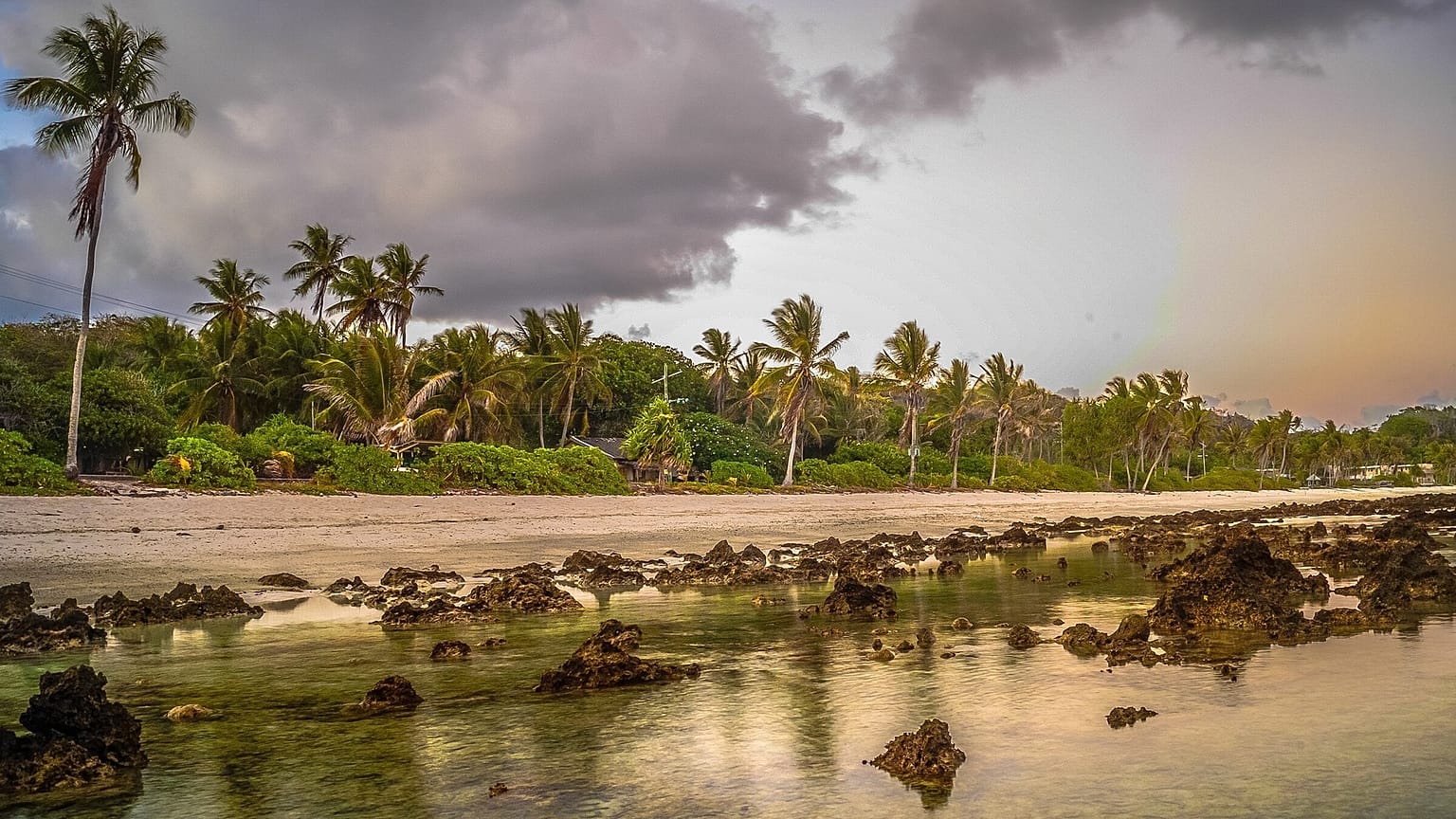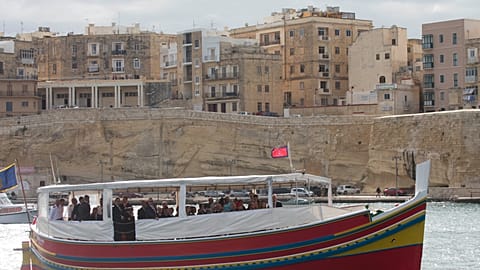Nauru’s first ‘golden passport’ scheme fell apart after the country granted citizenship to Al-Qaeda members.
Nauru is offering passports for a price, hoping to fund climate resilience efforts with a novel citizenship-for-investment scheme. But so far, few are buying in.
Earlier this year, the tiny South Pacific nation announced a novel plan to safeguard itself against rising seas: selling passports to raise money to relocate vulnerable communities.
Almost six months after the scheme launched in February, however, Nauru has approved just six applications, covering two families and four individuals, AFP reported this week. One other application was withdrawn - and would have been denied - after officials flagged it for "adverse findings" during background checks.
Despite the slow start, President David Adeang remained upbeat about the programme.
"We welcome our new citizens, whose investment will assist Nauru to secure a sustainable and prosperous future for generations to come," he said.
A ‘golden passport’ for climate adaptation
As climate change causes storms to rage, droughts to persist and seas to swell, Nauru – the world’s third-smallest country and one of its most climate-vulnerable – faces an existential crisis.
Officials estimate that nearly all of the 21-square-kilometre island’s 12,000 residents will eventually need to move to higher ground. The problem is that Nauru lacks inhabitable land, and the first phase of this ambitious relocation project could cost about €60 million.
To fund it, the government has pinned its hopes on citizenship by investment.
Under the scheme - announced at COP29 last year - wealthy individuals can acquire Nauruan citizenship in exchange for an investment of $105,000 (about €100,000) within four months of their application. In return, they gain visa-free access to 89 destinations, including the UK, Ireland, the UAE and Singapore.
Nauru hopes to drum up more than $5 million (about €4.25 million) in the first year of this "climate resilience citizenship" programme, according to its CEO, Edward Clark.
Nauru’s government aims to receive 66 successful applications this year.
The long-term goal is much higher. “We would like to achieve 500 applicants coming through the program,” totalling about €50 million, Clark said.
That total would make up about 20 per cent of all government revenues for Nauru and nearly cover the cost of the country’s ambitious relocation goals.
What is citizenship investment?
Residence or citizenship by investment schemes, often called ‘golden passports’, offer people the chance to get a residency permit for a country by purchasing property or making a large investment or donation.
Many developing or climate-vulnerable nations have offered them to raise funds for public works. But even large, wealthy countries have similar programmes. US President Donald Trump recently floated a $5 million (about €4.7 million) ‘gold card’ for wealthy investors, for one.
In recent years, however, their popularity has waned as governments have voiced concerns over security risks, as well as worries about money-laundering, tax evasion and a lack of transparency and information.
Across Europe, these schemes are largely being phased out, with Spain among the most recent nations to roll back its golden passport programme. Today, Greece is one of the last to offer residency by investment.
A nation struggling to stay afloat
Once one of the world’s richest nations per capita, Nauru was built on phosphate mining, an industry that has left 80 per cent of the island uninhabitable.
Most residents live on the coast. With seas set to rise anywhere between 15 and 30 centimetres by 2050, they are highly vulnerable to storm surges and coastal erosion, according to the World Bank’s climate risk profile of Nauru.
Nauru is also crowded. Australia’s Commonwealth Scientific and Industrial Research Organization (CSIRO) has warned that small islands can sustainably support about 100 people per square kilometre. Nauru currently has 563 people per square kilometre.
Other Pacific island nations facing similar threats have taken steps to ease overcrowding and adapt to climate change. Tuvalu, grappling with rising seas, saltwater intrusion and devastating floods, recently agreed to a pact with Australia, allowing hundreds of citizens to relocate each year.
With limited land and resources, Nauru’s long-term habitability is in question.
“It is not just about adapting to climate change but about securing a sustainable and prosperous future for generations to come,” Nauru’s President David Adeang told AFP.
“This is about more than survival. It is about ensuring future generations have a safe, resilient and sustainable home.”
Can citizenship sales save Nauru?
Initiatives like these are not without controversy. Nauru has tried selling citizenship before – with unfortunate results.
A 2003 scheme collapsed after it was found that the country provided citizenship to Al-Qaeda members who were later arrested elsewhere in Asia, according to Australian broadcaster ABC.
This time, Nauru says it will impose strict vetting standards. While critics remain sceptical, Clark sees it differently.
“Developing climate-vulnerable countries are disproportionately affected by climate change, and there is therefore an urgent need to ensure they disproportionately benefit from climate innovation,” he told AFP.


















